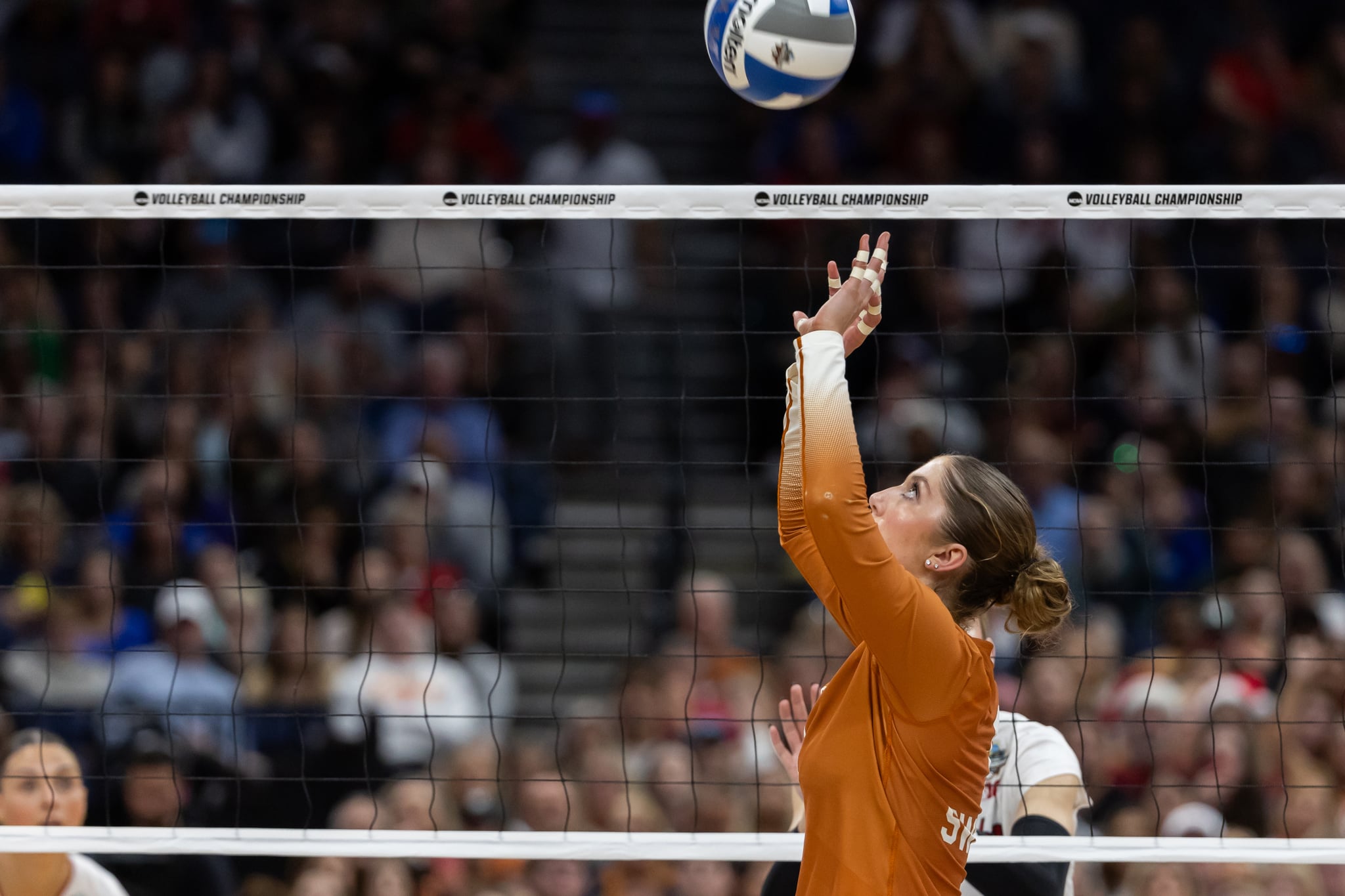If you’ve ever been to a college volleyball match, you know things can get intense. Whether it’s a killer block, elite dig, or perfectly executed bump, the game is full of skill. But there’s been a major change to NCAA women’s volleyball rules as you may know it: double contacts are now allowed.
A double contact, also known as a double hit, is when a player touches the ball twice in a row, or the ball touches two parts of the player’s body in succession. Previously, double contacts were not allowed in collegiate women’s volleyball, but the NCAA recently overturned this rule and determined double contacts are now permitted. (Notably, they also allowed colleges to have a two libero system, and challenge interference above the net.)
Double contacts have always been a hot topic during volleyball matches — and NCAA players have thoughts about the news that they’re now allowed.
The volleyball community is still processing their feelings about the change, with some players and fans expressing disbelief and frustration, and others insisting that it won’t significantly change gameplay. Here’s what to know about the new NCAA double contact rule in women’s volleyball.
What’s A Double in Volleyball?
A double contact in volleyball is when a player touches the ball twice in a row, or if the ball touches two parts of the player’s body in succession. For example, if a player sets the ball (makes an overhead pass to a hitter) but the ball goes back into the net and hits the player in the chest, that’s considered a double contact. It’s also a double contact when a setter (the player who runs the team’s offense) touches the ball with their hands separately rather than simultaneously.
Is Double Contact Allowed in Volleyball Now?
Yes, double contacts are now allowed in volleyball. That said, there are still some regulations. According to the new rule, women’s volleyball players are now allowed to “contact the ball more than once with any part of the body in a single attempt on a team’s second contact when the ball is played to a teammate.” However, if the ball is played over the net in this type of scenario, it would be ruled a fault, and the team would lose the point.
Why Are Doubles Allowed In Volleyball?
So what’s the reasoning behind the change? The NCAA Women’s Volleyball Rules Committee previously debated the topic in January, and officially changed the rules after they agreed the elimination of this call “would bring more consistency to the game.” They also felt the change would “promote continuation of play, which would make the game more entertaining for the players and fans.”
Plus, double hits have always been a hot topic during matches. Since it can be difficult to determine whether a setter actually touched the ball at different times or not, refs needed to use some subjectivity to make double contact calls, which therefore often sparked intense debates between coaches and officials. The NCAA noted that changing the rule will, hopefully, lessen those arguments. One assistant volleyball coach at the University of Wisconsin-Oshkosh even tweeted, “Sad day for all the coaches who dedicate their coaching style to complaining for doubles.”
Why Is the Volleyball Community Split About the Double Decision?
The reason you’re hearing a lot of intense responses to the rule change is because there are differing opinions about how it’ll impact gameplay. Some players, particularly setters, have taken to TikTok to express disappointment; they worked hard to develop their abilities and set without doubling, and some feel the rule change reduces that hard-earned skill. Others believe that allowing double contacts will usher in sloppier technique. There have even been calls to have the rule reversed, with one TikToker noting, “so you’re telling me anyone can be a D1 setter now??? Someone change the rule back.”
On the other hand, others say this rule change won’t dramatically impact the game. In response to one TikTok, people have sounded off in the comments explaining that “good setters are still going to be good,” and that “great setters will probably not be heavily affected by this change.” In fact, the NCAA even stated that data collected from 2022 found that the new rule would change only a “small number of calls.”
Only time will tell what the true impact will be. But the attention the change is getting highlights how passionate volleyball fans and players are about the game — and hopefully will translate into increased viewership to an exciting, talent-filled, and too-often-underappreciated sport.
